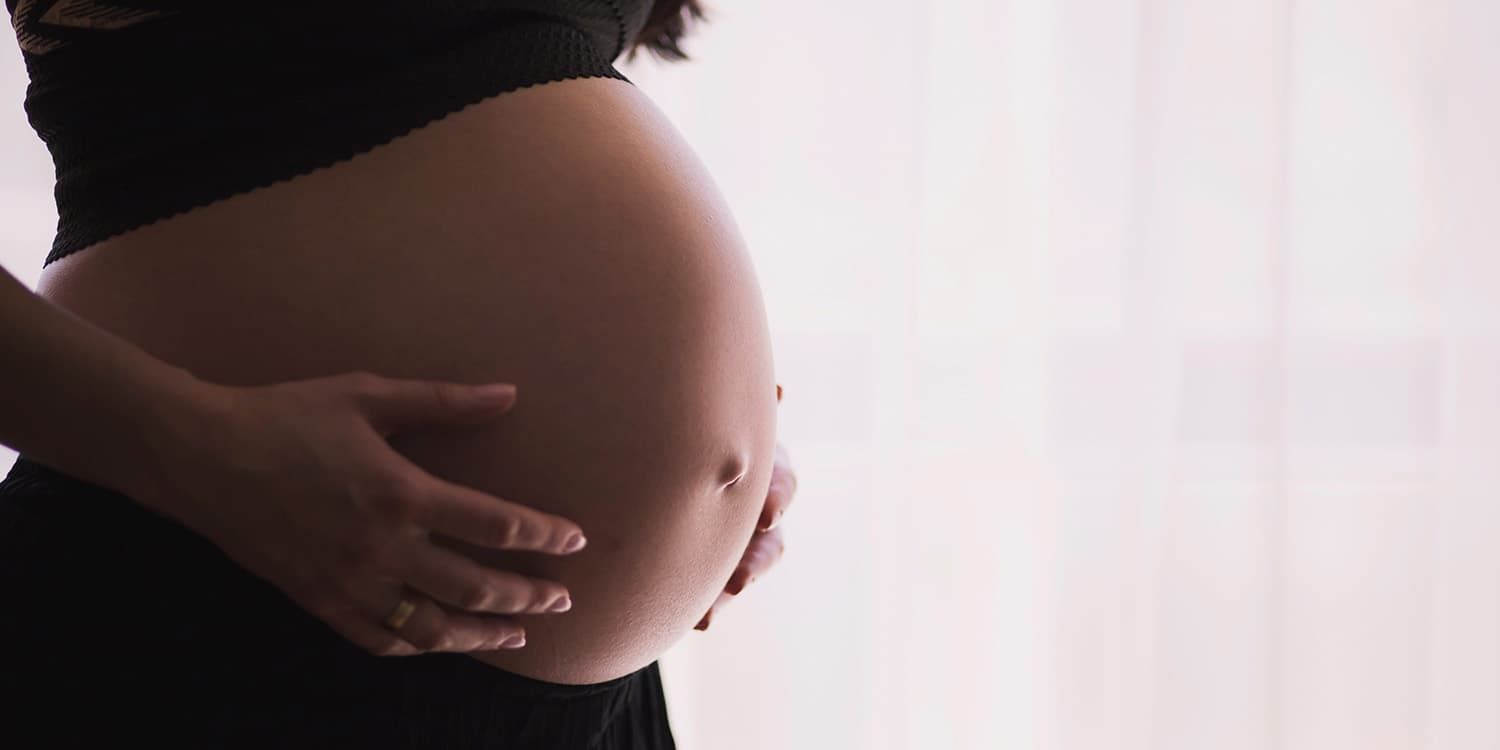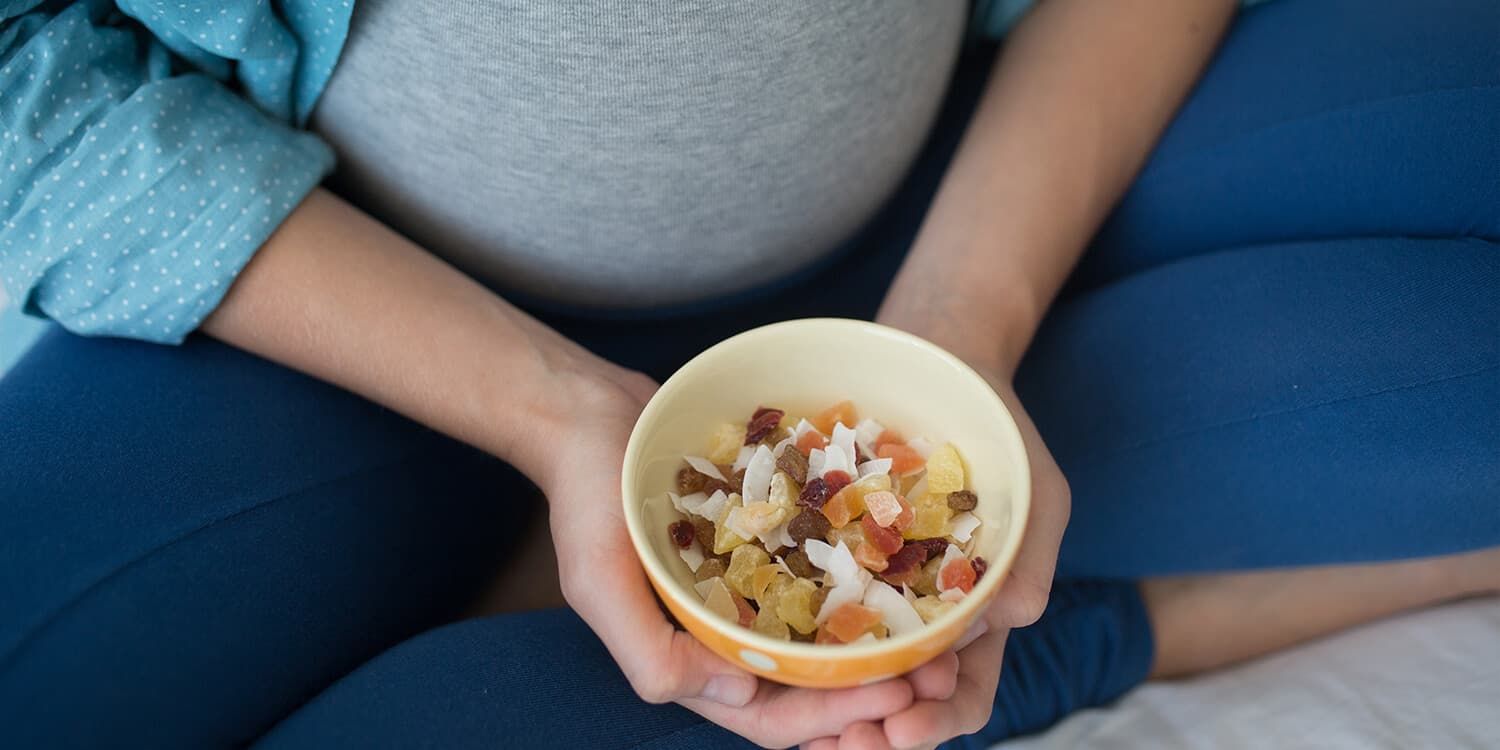Eating for two during pregnancy? As far as certain nutrients are concerned, some of the requirements during pregnancy really are much higher – but calorie requirements do not increase to the same extent. In this interview, MAM expert Marlein Stasche, an experienced nutritionist, tells us which foods are important to eat during pregnancy, which foods you should avoid during pregnancy, and how much weight you should gain.
Which foods and nutrients are particularly good and important during pregnancy?
- Eat 5 pieces of fruit and vegetables every day
- Choose wholegrain bread, basic muesli, wholegrain rice and wholegrain pasta instead of white flour products
- Try to cut down on saturated fat, and have small amounts of foods rich in unsaturated fat instead, such as vegetable oils: Use olive, rape and linseed oil
- Try to eat 2 portions of fish each week, 1 of which should be oily fish such as salmon, sardines or mackerel. Find out about the health benefits of fish and shellfish. There are some types of fish you should avoid when you're pregnant or planning to get pregnant, including shark, swordfish and marlin.
Does the nutrient requirement remain the same throughout pregnancy?
Which foods and stimulants should be avoided during pregnancy?
- Wash your hands (before cooking and before eating)
- Wash fruit and vegetables thoroughly
- Don’t eat any dishes with raw or incompletely cooked eggs, meat and fish
- Stay away from raw milk or dairy products and cheese made from unpasteurized milk
Can you drink coffee during pregnancy?
How much weight should I gain during pregnancy?
What helps with morning sickness?

Will an iron deficiency have negative consequences for my baby?
During pregnancy, the iron requirement doubles to 30 mg per day. Approximately 50 percent of pregnant women develop an iron deficiency. The unborn child can cover its iron requirements for a certain time at the expense of the mother’s iron reserves. However, it is better to remedy the iron deficiency with a dietary supplement.
Iron deficiency can lead to low birth weight, disrupt brain maturation and increase the risk of premature births.
These foods contain a high level of iron:
- Meat
- Fish
- Green vegetables
- Wholegrain products
- Nuts
- Beetroot
Can the baby’s development be improved by certain foods?
Pregnant women do not need to eat a special diet. They can meet their additional requirements for numerous nutrients with a balanced diet, as recommended for the general population. Exceptions are the critical nutrients folic acid and iodine. If you are unsure, it is best to talk to your doctor about suitable dietary supplements.
Vegetables, fruit, wholegrain products, milk and dairy products, low-fat meat and high-fat sea fish should be eaten regularly. Calorie-free or low-calorie drinks are also recommended. A vegetarian diet with milk, dairy products and eggs (ovo-lacto-vegetarian) can cover the need for most nutrients even during pregnancy, provided you have a broad knowledge of the critical nutrients.
In the case of a vegan diet, it is essential that you take a vitamin B12 substitute. Sometimes, it is also advisable to take a dietary supplement in addition to iodine and folic acid. A blood test can provide information about which specific nutrients are missing. After that, you and your doctor can decide whether and to what extent a supplement is necessary.
Photos: Shutterstock, Unsplash






























